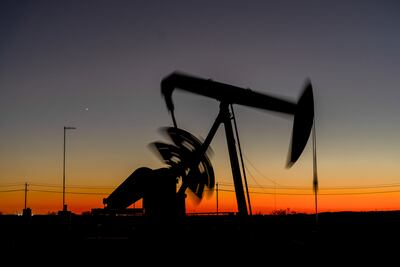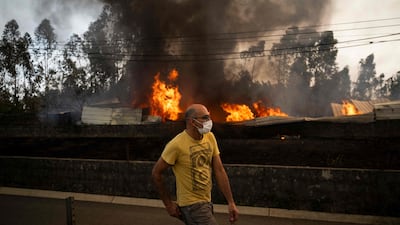The world is on the brink of experiencing an “irreversible climate disaster”, with 25 out of 35 “planetary vital signs” sitting at record extremes, scientists have warned.
The worsening indicators – including record temperatures and fossil fuel emissions, combined with all-time high and rising human and livestock populations – suggest a “critical and unpredictable new phase of the climate crisis” requiring urgent action, the researchers at Oregon State University said in a report.
“A large portion of the very fabric of life on our planet is imperilled,” said co-author William Ripple, a professor at the Oregon State University College of Forestry. “We’re already in the midst of abrupt climate upheaval, which jeopardises the life on Earth like nothing humans have ever seen.”

Taking more than the Earth can safely give has “pushed the planet into climatic conditions more threatening than anything witnessed even by our prehistoric relatives”, he added.
Three of the world’s hottest ever days occurred in July 2024 alone, according to the report. And both the human and livestock populations are at record levels and still rising exponentially each day.
The annual consumption of fossil fuels climbed by 1.5 per cent in 2023, mainly due to large jumps in the use of coal (1.6 per cent) and oil (2.5 per cent). According to the report, annual tree cover loss also globally rose from 22.8 million hectares in 2022 to 28.3 million in 2023, while global year-to-date averages, the concentrations of atmospheric carbon dioxide and methane are at all-time highs.

“The growth rate of methane emissions has been accelerating, which is extremely troubling,” said former postdoctoral researcher Christopher Wolf, who is now a scientist with Corvallis-based Terrestrial Ecosystems Research Associates (Tera). “Nitrous oxide, which is potent and long-lived, is also at a record high.”
Other concerns include record ocean acidity, heat, and average global sea levels, with all-time lows of Greenland ice mass, Antarctica ice mass and average glacier thickness. In addition, heat-related deaths rose by 117 per cent.
“Since the publication of our 2023 report, multiple climate-related disasters have taken place, including a series of heat waves across Asia that killed more than a thousand people and led to temperatures reaching 122 degrees Fahrenheit [50°C] in parts of India,” Prof Ripple said. “Climate change has already displaced millions of people, with the potential to displace hundreds of millions or even billions. That would likely lead to greater geopolitical instability, possibly even partial societal collapse.”

Little progress has been made, despite hundreds of reports, tens of thousands of scientific papers, 28 annual Cop meetings and six reports from the International Panel on Climate Change, he said. It is imperative “huge progress” is achieved at next month’s Cop29 meeting in Baku.
“Humanity’s future depends on creativity, moral fibre and perseverance. If future generations are to inherit the world they deserve, decisive action is needed, and fast.”
Akshay Deoras, a research scientist at the National Centre for Atmospheric Science and the Department of Meteorology at the University of Reading, who was not involved in the research, said the study provides further proof that the world is running out of time to fix the crisis. “The combined impact of the El Nino and global warming over the last year has caused some serious damage to our ecosystem, and human activities are to be blamed for this,” he told The National. Consolidated efforts are required to cut greenhouse gas emissions and restore biodiverse ecosystems. “It is up to us to decide to what extent we would like our future generations to suffer from climate crisis,” he added.


